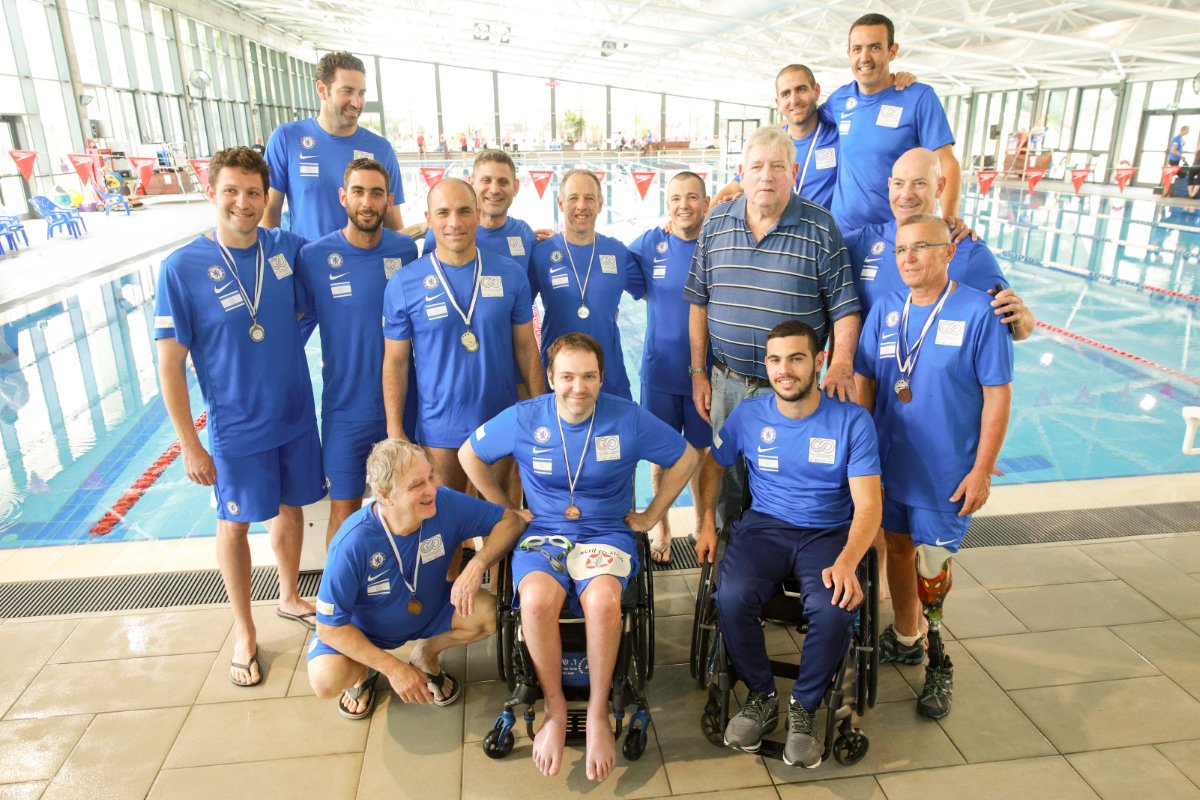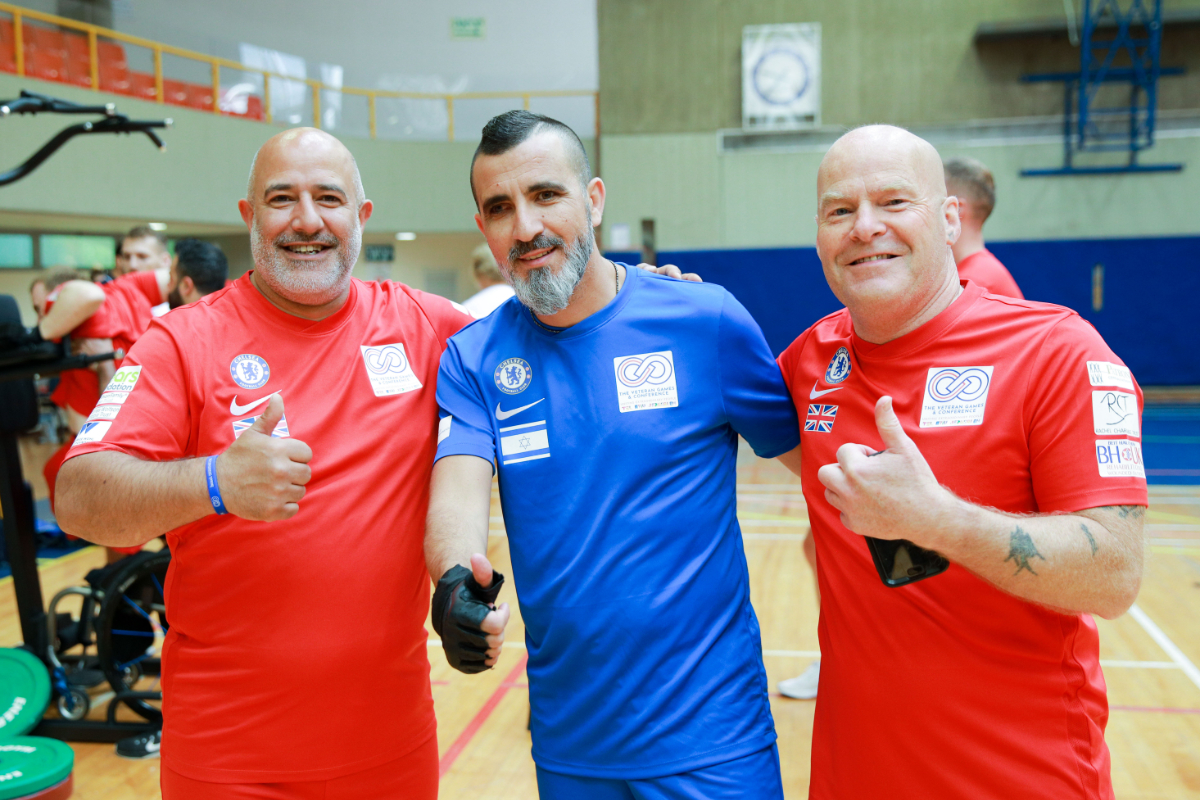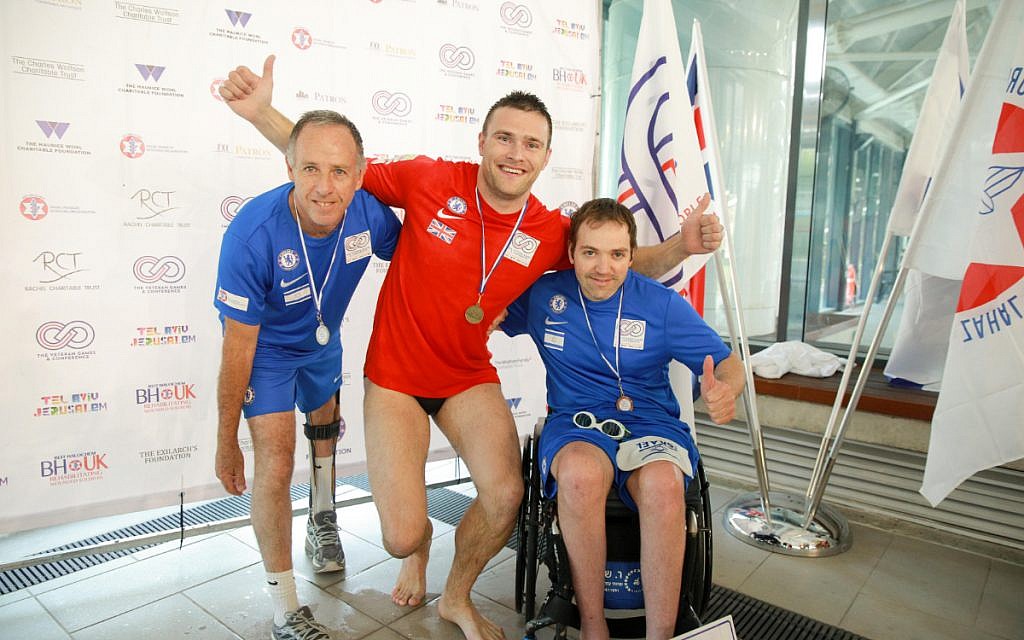Help For Heroes salutes Israeli rehab scheme at Veterans Games
Charity supporting injured ex-service personnel inspired by visit to rehabilitation centre run by Beit Halochem in Tel Aviv as part of a high-level conference on PTSD
A leading British charity has praised Israel’s approach to supporting the rehabilitation and recovery of wounded ex-soldiers and said it is a model that could be explored to further help veterans in the UK..
Help for Heroes chief executive Melanie Waters was inspired by a visit to a rehabilitation centre run by Beit Halochem in Tel Aviv as part of a high-level conference on post-traumatic stress disorder (PTSD) and mental health featuring experts from both countries.
She told Jewish News she was particularly struck that the centre offers on-site physiotherapy and other treatments as part of a “holistic” approach to rehabilitation.
Get The Jewish News Daily Edition by email and never miss our top stories Free Sign Up
“It’s not just about the sport when it comes to veteran care,” the CEO said. “It was great to hear the Israeli government contributes towards care. The charity and membership tops up that support. If the government only pays for two physiotherapy treatments and there is a need for more, then the charity element helps. I like that model.”
Waters hailed the “very generous” donors supporting Help for Heroes, but said what she had seen in Israel could feed into ongoing conversations with Health Secretary Matt Hancock. “Certainly there is something to say to the government about the holistic approach in uniting rehabilitation and recovery. If we were able to do this with government financial help, there would be a positive outcome because we’d be helping veterans to live and go back to work and prevent our veterans having to go elsewhere.
“Many military charities also have expertise with veterans they might not get in the health service.”
She said she was also “impressed by the sense of community” at the centre, one of four run by the charity nationwide to support 51,000 veterans and their families, as well as victims of terror attacks.
Waters – whose charity selects and trains the British squad for the Invictus Games, that were founded by Prince Harry – is now looking at the possibility of hosting a return veteran Games and conference in the UK. She said: “Recovery through sport is in our DNA. It’s great to see wounded veterans recovering with colleagues from Israel.
READ MORE:
- OPINION: Pushing the boundaries of what sport can do
- Israel’s Invictus: Veterans Games ‘unites extraordinary people’
“We are glad the families are here as we believe it’s part of rehabilitation and recovery.”
The conference also heard from the Kate Davies, a director in NHS England responsible for armed forces commissioning, and Israeli experts made presentations on innovations in the battle against PTSD in veterans.

Professor Sara Freedmen, of the School of Social Work at Bar-Ilan University, spoke about the use of virtual reality as a form of exposure treatment. Experts have now created a “virtual Gaza”, featuring the sounds of Army radio and complete with a vibrating floor and even smell, she told the conference.
Trials are set to begin later this year on a groundbreaking new virtual reality system allowing a person to change their body, rather than their location.
“We want to see if it can effect self-esteem and help resilience in soldiers over time,” she explained. “We think it can be used to boost resilience before going into stressful situations.”
The conference also heard of an ongoing trial on hyperbaric treatment – where those suffering from combat-related PTSD are placed in a special chamber and given oxygen every day for three months. Preliminary results show brain activity at a similar level to those free of PTSD and
a decrease in depression.
Haim Y Knobler, of Hebrew University, said a recent Israeli trial over four years involving medical cannabis showed a significant percentage of subjects with “much improved” symptoms.
The conference was chaired by Sir Simon Wessely, consultant advisor in psychiatry to the British Army, and prof Zahava Solomon of Tel Aviv University.

He said: “The Israelis have been known for some time to be very innovative in looking at treatments as they are with cannabis and MDMA [the main ingredient in the party drug ecstasy]. They’re further ahead than we are and obviously we’ll look with interest at the results.
“At the same time, we’ve led on peer support such as our trauma risk management systems, which seem to be moderately effective.
“It is vitally important to look not just within our own country and its armed services, but also to look beyond. Some important issues will be missed if we are solely inward-looking.”
He stressed that the two countries faced very different challenges in supporting veterans for a number of reasons, including compulsory service in Israel, and the existence of the NHS in the UK. Far higher drinking rates in Britain was another difference, he suggested. But Wessely said he would welcome specific funding from the state for the rehabilitation of veterans, as happens in Israel.
Ray Lock, chief executive of Forces in Mind Trust, returned to Israel for the conference 18 months after being part of a visiting delegation of military charities. He said: ‘It’s clear that the environment in which our two nation’s militaries operate is very different in some respects, but what is striking is the innovation Israel brings to sorting out the issues that are common.
“The nature of Israel – a very young, small state with a very clear identity – means that innovation thrives here. In Tel Aviv, there is no better place to come if you have an idea.
“I’ve felt since my first visit that the combination of cutting-edge technology and online technology that Israel can bring is a space where we may wish to go.”

Thank you for helping to make Jewish News the leading source of news and opinion for the UK Jewish community. Today we're asking for your invaluable help to continue putting our community first in everything we do.
For as little as £5 a month you can help sustain the vital work we do in celebrating and standing up for Jewish life in Britain.
Jewish News holds our community together and keeps us connected. Like a synagogue, it’s where people turn to feel part of something bigger. It also proudly shows the rest of Britain the vibrancy and rich culture of modern Jewish life.
You can make a quick and easy one-off or monthly contribution of £5, £10, £20 or any other sum you’re comfortable with.
100% of your donation will help us continue celebrating our community, in all its dynamic diversity...
Engaging
Being a community platform means so much more than producing a newspaper and website. One of our proudest roles is media partnering with our invaluable charities to amplify the outstanding work they do to help us all.
Celebrating
There’s no shortage of oys in the world but Jewish News takes every opportunity to celebrate the joys too, through projects like Night of Heroes, 40 Under 40 and other compelling countdowns that make the community kvell with pride.
Pioneering
In the first collaboration between media outlets from different faiths, Jewish News worked with British Muslim TV and Church Times to produce a list of young activists leading the way on interfaith understanding.
Campaigning
Royal Mail issued a stamp honouring Holocaust hero Sir Nicholas Winton after a Jewish News campaign attracted more than 100,000 backers. Jewish Newsalso produces special editions of the paper highlighting pressing issues including mental health and Holocaust remembrance.
Easy access
In an age when news is readily accessible, Jewish News provides high-quality content free online and offline, removing any financial barriers to connecting people.
Voice of our community to wider society
The Jewish News team regularly appears on TV, radio and on the pages of the national press to comment on stories about the Jewish community. Easy access to the paper on the streets of London also means Jewish News provides an invaluable window into the community for the country at large.
We hope you agree all this is worth preserving.
-
By Brigit Grant
-
By Laurent Vaughan - Senior Associate (Bishop & Sewell Solicitors)
-
By Laurent Vaughan - Senior Associate (Bishop & Sewell Solicitors)
-
By Laurent Vaughan - Senior Associate (Bishop & Sewell Solicitors)
-
By Laurent Vaughan - Senior Associate (Bishop & Sewell Solicitors)






















